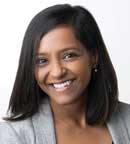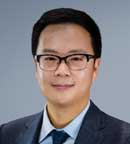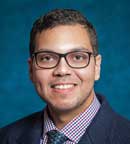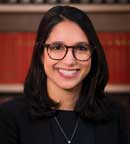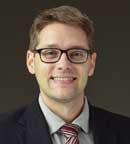The Young Uveitis Specialists (YUS) group is a subsection of the American Uveitis Society (AUS). They are a professional group of early career uveitis specialists and specialists in training. Here, Retinal Physician speaks with founding members Arthi Venkat, MD; Edmund Tsui, MD; Kareem Moussa, MD; Jessica Shantha, MD; and Eric Crowell, MD, about the organization and its goals.
Retinal Physician: Dr. Venkat, could you describe how YUS was formed?
Arthi Venkat, MD: We wanted to create a group for uveitis specialists in training or in their first 5 years of practice, because the type of guidance needed by this group differs greatly from what is needed later in their career. Some examples of helpful early-career guidance include information on setting up a practice, bringing in clinical trials, and complex cases.
We started with a WhatsApp group chat comprised of newly graduated uveitis fellows, and this led to a proposal for a formal early career section that we presented to the American Uveitis Society, which they were kind enough to accept. It’s been a really great experience, and we’ve been able to develop a lot of helpful programming. It has also allowed early career subspecialists to be more connected with more senior uveitis specialists, creating opportunities for mentorship and building important professional connections.
RP: What are the guiding principles of the group?
Edmund Tsui, MD: Our goal is to provide early career guidance and mentorship and to serve as a venue to discuss day-to-day practice and challenging cases. We have a large group chat where YUS communicates in real time, and we communicate announcements via our listserv. It has helped bring the community together as a whole.
RP: What have been some of the main achievements for the group?
Kareem Moussa, MD: We’ve had significant achievements over the last few years in the educational realm. We provide educational offerings to uveitis specialists in the United States and internationally. The Virtual Uveitis Fellows Course is a national course that we ran for 3 years, with the aim of providing instruction on the basic principles of uveitis evaluation and management for US-based fellows and training. To our surprise, the turnout for these courses was very strong, both from the United States and internationally. We have a journal club that meets every few months to keep us all up to date on the latest research in uveitis. We also host uveitis grand rounds meetings every few months. We provide these virtually to increase access.
Jessica Shantha, MD: The educational content has not only added to the value of our organization, but also given the younger uveitis specialist a platform to share educational ideas. A nontangible accomplishment is really creating community surrounding uveitis, because it is a really tough subspecialty and there are not very many of us. Also, the mentorship that we encourage between newer and more established uveitis specialists helps to create more opportunity and hopefully will inspire a new generation of people to go into uveitis.
Eric L. Crowell, MD: We also want to create opportunities for leadership for early career uveitis specialists, because there have not historically been as many avenues for that within AUS. This is changing, and that may be partly from our demonstrating that there really is interest in leadership among early career members.
JS: Many uveitis specialists have historically been in academic medicine, but as more people are being trained in uveitis, many are obtaining dual fellowships including retina/uveitis, cornea/uveitis, and glaucoma/uveitis. So, we want to be open to people not just in academia but in other practice settings.
AV: We modeled the concept after the early career subsections that exist within other professional societies. For example, the early career section of the American Society of Retina Specialists (ASRS) is closely enmeshed within ASRS and they’re very cohesive. We would like that as well, and I think we are achieving that now. The way we are doing that is to maintain a conduit from YUS for people to join AUS and become part of the greater organization. That’s our long-term strategy, and I believe that aligns with the goals of the AUS as well. In addition, we want uveitis specialists to feel that AUS is meeting the needs of those in private practice, which can look very different from those of traditional academic uveitis specialists.
RP: How does one join?
EC: Reach out to any one of us; it’s been word of mouth so far.
AV: As time goes on, we’ll try to create something a little bit more concrete, hopefully through the AUS website so that people can join that way. We’re working toward that. You’ll need to meet criteria to join, which are the same criteria as that for AUS aside from needing to be within the first 5 years of practice or in fellowship training, or a resident planning on uveitis fellowship.
RP: Are there committees or subsections of the group?
ET: Our group is divided into 5 committees, so that there are various leadership roles and opportunities to volunteer available. We have a career advancement committee, a membership committee, a communications committee, a research committee, and an education committee. These committees provide a venue to discuss and plan various YUS activities to increase member engagement, and it also provides leadership roles for our members. We’re also active on social media, especially Instagram and Twitter, where we post highlights from our virtual and in-person events. You can follow our accounts at @younguveitis.
AV: Eric mentioned in-person events, so I will just put in a plug for those: we recently arranged our first in-person YUS meeting at the 2023 American Academy of Ophthalmology meeting, which was excellent and well attended. We created a program in which various early-career uveitis specialists from private practice and academia spoke about their clinical and research experiences. We touched on important topics like practice management and the logistics of prescribing immune suppression. We hope to continue that in conjunction with other national meetings, such as ARVO or the AUS Winter Symposium, in the future. RP









